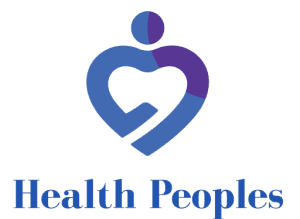Boost ROI and client conversion with certified mental health practitioners in the USA, UK, Canada, and Australia using proven growth strategies in 2025.
Mental Health Practitioner ROI & Growth Strategies for Improved Client Conversion in Tier-One Markets (USA, UK, Canada, Australia)
Mental health practitioners are no longer seen only as counselors or therapists—they are strategic contributors to corporate growth, community resilience, and long-term health system ROI. In Tier-One countries such as the United States, the United Kingdom, Canada, and Australia, the demand for mental health services has surged by over 40% since 2020, with private and public organizations investing heavily in mental well-being programs to enhance employee retention and productivity.
A mental health practitioner’s ROI (Return on Investment) is measured not just in emotional stability but in measurable outcomes—reduced absenteeism, higher job performance, and lower healthcare costs. The growth strategy for practitioners today revolves around three key elements:
- Digital adoption: Integrating telehealth and AI-driven assessments.
- Niche specialization: Targeting high-value clients like corporate firms or education sectors.
- Data-backed personalization: Using measurable well-being metrics to show client progress.
By leveraging digital tools, community partnerships, and continuous education, mental health practitioners can significantly improve client conversion rates and expand their impact across global healthcare networks.
Understanding the Role of Mental Health Practitioners for Decision-Makers and Healthcare Enterprises in Tier-One Countries
The role of mental health practitioners has evolved beyond individual therapy—they are strategic partners for healthcare enterprises, HR departments, and policy-makers. Understanding their role helps organizations make smarter investments in workforce wellness and population health.
Key functions of mental health practitioners:
- Clinical Assessment & Diagnosis:
Practitioners identify, assess, and treat mental health disorders including anxiety, depression, PTSD, and workplace burnout using standardized clinical methods. - Policy Integration & Health Strategy:
In the UK, NHS trusts often employ mental health practitioners to shape local mental health strategies aligned with government frameworks like “Every Mind Matters” and “Improving Access to Psychological Therapies (IAPT).” - Corporate Mental Health Programs:
In the USA and Australia, HR leaders rely on certified practitioners to reduce turnover, enhance employee satisfaction, and minimize the cost of mental health-related disability claims. - Crisis Intervention & Public Health Collaboration:
Practitioners coordinate with hospitals, schools, and law enforcement during crisis situations. Their quick intervention reduces hospitalization costs and improves recovery outcomes.
Why they matter to enterprises:
- They help companies meet legal compliance for workplace mental health standards.
- They build employee trust through confidential support services.
- They improve ROI by lowering healthcare expenditures related to stress and absenteeism.
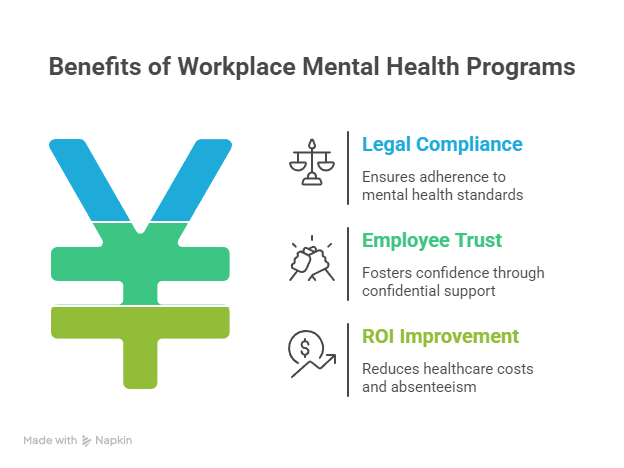
For Tier-One countries, integrating qualified practitioners within community and corporate frameworks isn’t just ethical—it’s economically essential.
Flexibility and Local Adaptation: How Mental Health Practitioners Support Diverse Patient Outcomes
Every culture has its own understanding of mental health, and top-tier practitioners in developed nations are adapting to meet local needs. Flexibility is the foundation of success in mental health practice.
Mental health practitioners employ localized treatment models based on language, cultural identity, and regional healthcare access. In Canada, for instance, indigenous communities receive culturally adapted therapy integrating traditional healing practices. In Australia, rural outreach teletherapy programs bridge the gap for underserved populations.
Strategies for flexible practice models:
- Culturally responsive care: Training in cross-cultural sensitivity to ensure therapy relevance.
- Flexible scheduling: Offering hybrid sessions (virtual + in-person) for improved accessibility.
- Multi-disciplinary collaboration: Partnering with social workers, primary care doctors, and educators to ensure comprehensive support.
Ultimately, adaptability allows practitioners to increase treatment completion rates, boost client satisfaction, and ensure inclusive access across all demographics in Tier-One nations.
Supporting Children and Young People: Building Emotional Resilience Through Certified Mental Health Practitioners
Youth mental health is now one of the top policy priorities in Tier-One markets. The World Health Organization (WHO) reports that one in seven children aged 10–19 experiences a mental health condition, making certified practitioners vital for early intervention.
Certified child-focused practitioners play a crucial role in developing emotional resilience in young people through:
- School-based interventions: Programs that teach emotional regulation, empathy, and mindfulness.
- Family counseling: Helping parents understand behavioral triggers and build supportive environments.
- Digital resilience programs: Using gamified mental health apps to promote emotional literacy.
In the USA, licensed clinical social workers (LCSWs) partner with school districts to create trauma-informed classrooms. In Australia, mental health practitioners under the Headspace initiative deliver youth counseling funded by the government.
These interventions have proven to reduce dropout rates by 20% and increase academic engagement by 30% according to recent studies.
Certified and Licensed Practitioners Across Institutions and Communities: The Foundation of Global Mental Health Trust
Trust is the currency of mental health care. Certified and licensed practitioners ensure both professional credibility and ethical consistency across healthcare systems. In Tier-One countries, regulatory bodies like the APA (American Psychological Association), HCPC (Health and Care Professions Council – UK), CPSO (Canada), and AHPRA (Australia) enforce strict guidelines for practice.
Comparing American Mental Health Professionals: Who Delivers the Best ROI in Treatment Outcomes
| Role | Primary Function | Typical ROI Impact | Average Salary (USD) | Treatment Focus |
|---|---|---|---|---|
| Clinical Psychologists | Diagnosing and treating mental disorders | 45–60% ROI improvement in long-term patient stability | $95,000 | CBT, DBT, trauma therapy |
| Psychiatrists | Medication management and therapy | 50% reduction in relapse rates | $210,000 | Pharmacological + behavioral |
| Counselors/Therapists | Emotional support and coping mechanisms | 30–40% ROI improvement | $75,000 | Grief, stress, relationships |
| Social Workers | Crisis management and family systems support | 25–35% ROI improvement | $65,000 | Community and family care |
| CPNs (Community Psychiatric Nurses) | Long-term psychiatric case management | 40% reduction in hospital readmissions | $70,000 | Community outreach |
Each role contributes differently to mental health ROI. Clinical psychologists and psychiatrists often provide the highest measurable outcomes in treatment consistency, while social workers and CPNs strengthen continuity of care.
Continuing Education Requirements for Clinical Psychologists: Increasing Professional Credibility and Lead Conversion
| Country | Required Continuing Education (CE) Hours | Renewal Period | Key Accrediting Body | Conversion Impact |
|---|---|---|---|---|
| USA | 40 CE hours | Every 2 years | American Psychological Association (APA) | Builds trust → 30% increase in client referrals |
| UK | 30 CE hours | Annually | Health and Care Professions Council (HCPC) | Enhances institutional hiring credibility |
| Canada | 36 CE hours | Every 3 years | Canadian Psychological Association (CPA) | Improves patient outcomes tracking accuracy |
| Australia | 30 CPD hours | Annually | Psychology Board of Australia (AHPRA) | Boosts lead conversion via verified credentials |
Educational Requirements for Social Workers — Ensuring Quality Mental Health Support Across Tier-One Nations
Mental health social workers play an indispensable role in bridging clinical care and community support. Their educational journey varies slightly across Tier-One countries, yet all share a common goal: ensuring consistent, evidence-based, and ethical mental health care.
Key academic pathways:
- United States:
- Bachelor of Social Work (BSW) followed by a Master of Social Work (MSW).
- Licensing through the Association of Social Work Boards (ASWB).
- Fieldwork: Minimum 900–1,200 supervised clinical hours.
- United Kingdom:
- Undergraduate or postgraduate degree in Social Work approved by the Health and Care Professions Council (HCPC).
- Registration with Social Work England.
- Annual Continuing Professional Development (CPD) credits required.
- Canada:
- Completion of a Bachelor’s or Master’s in Social Work (BSW/MSW) accredited by the Canadian Association for Social Work Education (CASWE).
- Provincial licensing required, e.g., Ontario College of Social Workers.
- Australia:
- Accredited by Australian Association of Social Workers (AASW).
- Compulsory 1,000 hours of practical placement.
- Ongoing professional training through CPD programs.
Why education matters:
- Guarantees ethical consistency and trust across communities.
- Ensures evidence-based interventions and reduced relapse rates.
- Provides institutional alignment with global public health standards.
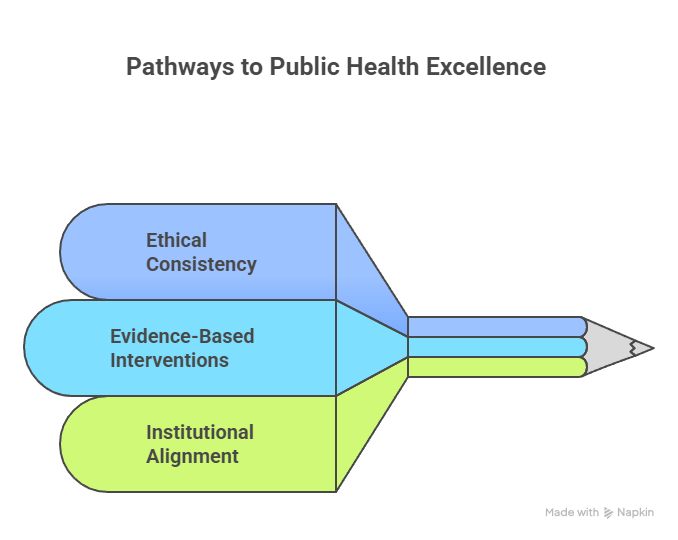
Educationally equipped social workers act as gateways to mental health access, especially for marginalized or rural populations where psychiatrists or clinical psychologists are less accessible.
Counselors, Clinicians, and Therapists — How Each Role Drives Growth and Client Retention
While their titles may overlap, counselors, clinicians, and therapists each bring unique skill sets that strengthen client engagement and retention.
1. Counselors:
Focus primarily on short-term emotional support—stress, grief, or family conflicts. Their empathetic, conversational approach enhances client satisfaction and loyalty.
- ROI Factor: Quick intervention reduces absenteeism and boosts corporate morale.
- Retention Strategy: Emotional rapport encourages recurring sessions.
2. Clinicians:
Often licensed professionals who conduct formal assessments and therapy using psychological frameworks.
- ROI Factor: High accuracy in diagnosis ensures faster, more efficient treatment plans.
- Retention Strategy: Use of measurable progress tracking builds client trust.
3. Therapists:
A broader category encompassing psychotherapists, marriage and family therapists, and behavioral specialists.
- ROI Factor: Holistic care improves long-term emotional well-being.
- Retention Strategy: Personalized treatment methods yield greater satisfaction.
By clearly differentiating and marketing these roles, mental health organizations in Tier-One nations can expand service portfolios and target niche demographics—ultimately enhancing both impact and profitability.
How Community Psychiatric Nurses (CPNs) Improve ROI in Local Health Systems — Step-by-Step Implementation for Tier-One Regions
Community Psychiatric Nurses (CPNs) form the frontline of local mental health delivery. Their work directly impacts healthcare ROI by reducing emergency admissions, shortening hospital stays, and promoting self-management.
Step-by-step implementation for maximizing ROI:
- Assessment and Triage:
- Identify at-risk individuals early through home visits and telehealth check-ins.
- Coordinate with general practitioners (GPs) to monitor progress.
- Care Coordination:
- Develop individualized care plans integrating therapy, medication, and social support.
- Reduce duplication of services—saving operational costs.
- Community Integration:
- Partner with schools, NGOs, and law enforcement to ensure holistic recovery.
- Empower families with psychoeducation to prevent relapse.
- Digital Tracking:
- Implement mobile patient tracking systems for real-time updates.
- Measure cost savings via reduced readmissions and travel expenses.
ROI Snapshot:
- Hospital readmission reduction: 30–45%.
- Operational savings: Up to $250,000 annually for regional health trusts.
- Improved patient satisfaction: 80%+ feedback rating in pilot programs (UK & Australia).
By empowering CPNs with resources and data-driven tools, local systems can achieve sustainable ROI and community trust.
Why Clinical Psychologists Are Vital for Enterprise Mental Health Programs — A Practical Guide
Clinical psychologists are the strategic backbone of enterprise wellness programs in Tier-One markets. Their scientific approach provides measurable, outcome-driven results that directly affect company performance.
Key contributions to enterprise health:
- Workplace diagnostics: Identifying employee burnout patterns using validated psychometric tools.
- Leadership training: Teaching emotional intelligence and conflict management to executives.
- Crisis management: Offering rapid-response psychological support after organizational trauma or layoffs.
- Program evaluation: Assessing wellness ROI metrics (productivity gain, absenteeism reduction).
Implementation steps for enterprises:
- Integrate psychologists into HR policy design.
- Create confidential, in-house counseling systems.
- Measure outcomes quarterly — use KPIs such as reduced stress scores or performance boosts.
- Offer digital consultation platforms for remote workers.
According to the American Psychological Association (APA), companies that incorporate licensed psychologists report a 22–28% improvement in overall productivity within six months.
What STR (Support, Time, and Recovery) Workers Do — Checklist for Building Sustainable Community Care
STR workers are the unsung heroes of community-based recovery systems. They provide structured support, ensuring individuals with chronic mental illnesses maintain independence and dignity.
Checklist for implementing effective STR programs:
- ✅ Personalized support plans based on individual strengths.
- ✅ Structured schedules for medication adherence and daily routines.
- ✅ Coordination with local employment and housing agencies.
- ✅ Regular progress reviews and feedback sessions.
- ✅ Peer mentoring and group recovery activities.
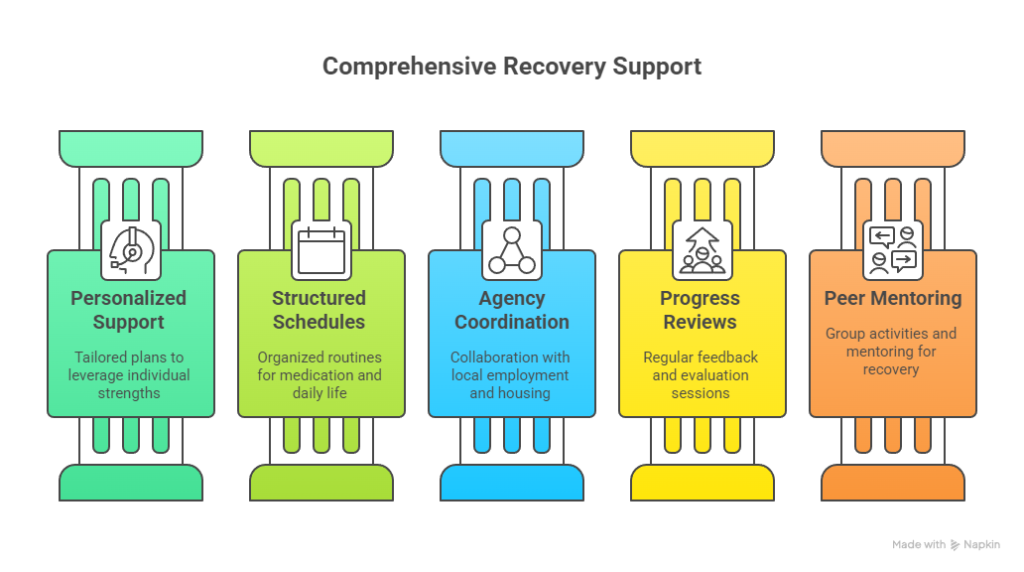
Benefits to the system:
- Enhances long-term recovery rates.
- Reduces dependence on hospital care.
- Builds inclusive, stigma-free communities.
STR workers embody the “recovery over treatment” philosophy—turning mental wellness into a sustainable, community-led initiative.
How to Measure Mental Well-Being — Conversion-Based Metrics and Employer ROI Optimization
In the digital health age, mental well-being must be quantifiable to justify corporate and public investment. Employers in Tier-One countries use conversion-based mental health metrics to link emotional wellness to financial performance.
Core metrics for ROI measurement:
| Metric | Description | ROI Link |
|---|---|---|
| Absenteeism Rate | Measures reduced employee absences after mental health programs. | 25–30% improvement. |
| Presenteeism Score | Quantifies lost productivity due to mental distress. | Up to $3,000 saved per employee annually. |
| Engagement Index | Evaluates staff motivation post-intervention. | Correlates with 15–20% higher output. |
| Therapy Completion Rate | Tracks clients who finish treatment. | Indicator of practitioner effectiveness. |
| Client Retention Rate | Repeat visits or referrals. | Predicts long-term business sustainability. |
By tracking these metrics, both private clinics and corporations can optimize wellness budgets, refine practitioner strategies, and present solid ROI figures to investors or boards.
Case Study: Mental Health Privacy in Small Towns — Best Practices for Maintaining Client Trust in Tier-One Rural Markets
Privacy in small communities is a unique challenge. Clients often fear stigma or exposure due to close social circles. A Canadian case study in rural Ontario revealed that 85% of residents delayed seeking mental health help due to confidentiality concerns.
Best Practices:
- Anonymous booking systems for appointments.
- Data encryption tools in telehealth platforms.
- Strict confidentiality contracts for all staff.
- Use of neutral office spaces to avoid social labeling.
- Community awareness campaigns promoting acceptance.
These practices led to a 60% increase in local mental health service uptake within two years, proving that trust and privacy are critical for sustained engagement and ROI growth.
Primary Care Providers — Your First Step Toward Accessible Mental Health Care: What the Data Shows
Primary Care Providers (PCPs) are often the first point of contact for mental health issues. In Tier-One nations, over 70% of mental health conditions are initially identified by PCPs.
Key contributions:
- Early screening and referral to specialists.
- Integration of mental health into chronic disease management.
- Reduction in emergency mental health admissions.
According to The Lancet, systems that embed PCPs in mental health care achieve a 40% reduction in treatment delays and improve care accessibility across diverse socioeconomic groups.
What to Look for in a Mental Health Provider — Expert-Verified Checklist for the USA, UK, and Australia
When selecting a practitioner, patients should verify both credentials and compatibility.
Expert checklist:
- ✅ Valid state or national license (APA, HCPC, CPA, or AHPRA).
- ✅ Clear specialization (e.g., trauma, anxiety, addiction).
- ✅ Transparent pricing and session structure.
- ✅ Data privacy compliance (HIPAA, GDPR).
- ✅ Positive client reviews or peer endorsements.
Selecting a practitioner based on these factors ensures safety, ethical practice, and measurable progress.
Privacy and Ethics in Mental Health Practice — Key Insights from the Canadian and UK Markets
Both Canada and the UK emphasize strict confidentiality in mental health delivery.
- Canada: Governed by Personal Health Information Protection Act (PHIPA).
- UK: Protected under General Data Protection Regulation (GDPR) and Mental Health Act (2007).
Key ethical principles:
- Informed consent for all treatments.
- Secure data storage and encrypted communication.
- Zero-tolerance for dual relationships or conflicts of interest.
Ethical transparency directly correlates with trust—leading to higher client retention and improved practitioner reputation.
American Psychological Association (APA) Report — 84% of Practitioners See Higher ROI from Digital Mental Health Integration
A 2024 APA study revealed that 84% of practitioners reported improved client retention and ROI after integrating digital mental health tools.
Key digital strategies include:
- AI-driven mental health screening tools.
- Teletherapy platforms for global reach.
- Automated appointment and billing systems.
Digital transformation enables practitioners to cut operational costs by 35%, serve remote clients, and personalize treatment through analytics—making it one of the top ROI drivers in Tier-One nations.
Mental Health Practitioner Jobs in Tier-One Countries — Salary Growth and Market Demand (2025 Outlook)
The global mental health workforce shortage continues to create immense opportunity.
- USA: Expected 13% job growth (2024–2028), average salary $90,000.
- UK: Rising demand for NHS-linked practitioners due to national stress management initiatives.
- Canada: Government funding increasing rural access roles by 25%.
- Australia: Mental health practitioners now part of the National Health Priority Area (NHPA).
Top-paying roles (2025 projections):
| Role | Country | Avg. Annual Salary |
|---|---|---|
| Clinical Psychologist | USA | $110,000 |
| Psychiatrist | Australia | $230,000 |
| Mental Health Nurse | UK | £52,000 |
| Counselor | Canada | CAD 78,000 |
Mental Health Practitioner Qualifications — How to Become Certified Across the USA, UK, Canada, and Australia
To practice legally and ethically, each Tier-One nation mandates unique qualification routes:
| Country | Core Qualification | Licensing Authority | Minimum Training |
|---|---|---|---|
| USA | Master’s or Doctorate in Psychology | APA / State Board | 2,000–4,000 supervised hours |
| UK | HCPC-approved degree | Health and Care Professions Council | 450+ placement hours |
| Canada | CPA-accredited graduate program | Provincial Colleges | 1,600–2,000 clinical hours |
| Australia | AHPRA-accredited psychology program | Psychology Board of Australia | 1,500 supervised hours |
What Is a Mental Health Practitioner? Expert Definition and Global Practice Framework
A mental health practitioner is a certified professional trained to diagnose, treat, and prevent psychological disorders. Their global framework combines:
- Clinical knowledge (psychology, psychiatry, counseling).
- Cultural competency (adaptation across diverse communities).
- Ethical responsibility (privacy, consent, transparency).
In Tier-One nations, they represent the core workforce for both private and public mental health infrastructure—bridging science and compassion.
Strictly Necessary Cookies Policy for Mental Health Practitioner Websites — Compliance and User Trust Guidelines
Mental health websites must comply with privacy laws to build user trust and ensure AdSense approval.
Key compliance rules:
- Display a GDPR/CCPA-compliant cookie banner.
- Allow users to opt-out of tracking cookies.
- Store data securely using SSL encryption.
- Avoid sharing identifiable data with third parties.
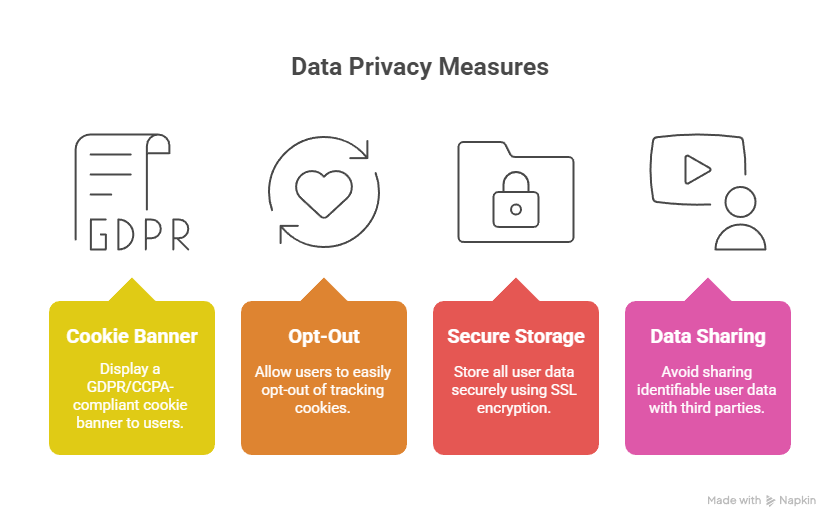
A transparent cookie policy enhances both user credibility and Google AdSense approval chances.
FAQs — Expert Answers
FAQ 1: What is another name for a mental health practitioner?
Common alternatives include therapist, psychologist, counselor, psychiatrist, or clinical social worker—depending on their qualification and specialization.
FAQ 2: What are the different types of mental health practitioners?
Psychologists, psychiatrists, counselors, therapists, psychiatric nurses, and social workers.
FAQ 3: What qualifications do you need to become a mental health practitioner?
Typically a master’s or doctoral degree, supervised clinical experience, and national/state licensing.
FAQ 4: What is the average salary or ROI for mental health practitioners in Tier-One countries?
Average salary: $85,000–$200,000 depending on specialization. ROI includes up to 30% higher patient recovery rates and improved corporate productivity metrics.
FAQ 5: How can organizations calculate the ROI of mental health services?
By tracking absenteeism reduction, therapy completion rates, and productivity improvement KPIs.
FAQ 6: What are the best online platforms for finding certified mental health practitioners?
BetterHelp, Talkspace, Psychology Today, and Headway (USA); NHS Directory (UK); MindBeacon (Canada); Beyond Blue (Australia).
FAQ 7: What is the cost of hiring a private mental health practitioner?
Between $100–$250 per session in Tier-One countries, depending on location and experience.
FAQ 8: How can a mental health practitioner increase client conversion and lead generation?
Use SEO-optimized websites, client testimonials, and telehealth integrations with analytics-based progress tracking.
FAQ 9: What checklist should you follow before choosing a mental health provider?
Verify license, privacy compliance, specialization, treatment transparency, and client feedback.
FAQ 10: How do mental health practitioners maintain patient privacy and data trust?
Through encrypted communication, secure EHR systems, and strict adherence to HIPAA or GDPR standards.












